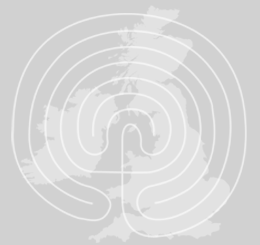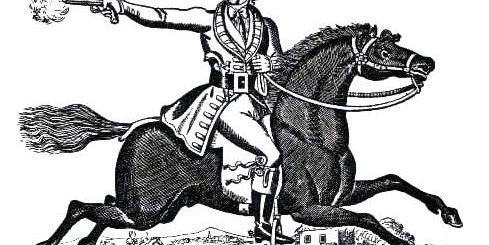Henry Jacob’s Ghost
The following account of an apparition experienced by the physician and politician Dr William Jacob (Born 1623 – Died 1692) was taken from ‘The Haunted Homes and Family Traditions of Great Britain’ by John Ingram (1897).
In his celebrated Athenae Oxonienses Anthony à Wood*, the learned antiquary, states that Dr. Jacob, a well-known medical man. told him the following marvellous relation of an apparition that visited his house at Canterbury. “This very story,” records à Wood, “Dr. Jacobs told me himself, being then at Lord Teynham’s, in Kent, where he was then physician to my eldest son, whom he recovered from a fever: “Dr Jacob also repeated the relation in a letter which Aubrey, the antiquary, alludes to in his Miscellanies. The story is that “the learned Henry Jacob,” a fellow of Merton College, Oxford, died at Dr. Jacob’s house at Canterbury.**
About a week after Henry Jacob’s death, the doctor being in bed and awake, and the moon shining bright into his room, he beheld his deceased cousin standing by the bedside in his shirt, with a white cap on his head, and his “mustachoes turning up, as when he was alive.” The doctor pinched himself to be assured that he was awake, and turned to the other side away from the apparition. After some time he plucked up courage to turn towards it again, and Henry Jacob stood there still. The doctor would have spoken to him, but could not, for which he has been sorry ever since. In some little time the apparition disappeared.
Not long after this incident the cook-maid, going out to the wood-pile one evening to fetch some wood for the kitchen fire, averred that she saw the apparition of Mr. Henry in his shirt, standing on the pile of wood.
This spectre does not seem to have troubled the doctor any more; but it is stated that when dying Henry Jacob would fain have told his cousin something, but was not able to. It is imagined, says Aubrey, that he would have informed Dr. Jacob with what person he had deposited the manuscripts of his own writings, which were all the riches he had, and which, it was strongly suspected, fell into the hands of a certain person who printed them under his own name. If anything could bring an author’s spirit back to this sphere, certainly such an outrage on his memory would.
Note: I do not know Dr William Jacobs 1652 address where he had his experience. The map below shows the location where All Saints Church stood on the corner of High Street and Best Lane. Henry Jacob was buried here following his death. This medieval church was replaced in in 1828, and subsequently closed in 1902.
*[Anthony Wood or Anthony à Wood (Born 17 December 1632 – Died 28 November 1695) published Athenae Oxonienses between 1691-1692]
**[Henry Jacob (Born 1608 – Died 5 November 1652) was an author and the son of Rev Henry Jacob of Cheriton, Kent (Born 1563 – Died 1624) the founder of a separatist congregation associated with the dissenter followers of Robert Browne. In 1752 Henry was staying with Dr Jacob (no relation) in Canterbury. Henry Jacob had gangrene in his foot which was cured by Dr Jacob, but complications followed. A violent discharge caused by a tumour and abscess in one of his legs proved fatal and Henry died on 5 November 1652. He was buried on 6 November 1652 at All Saints Church, Canterbury.




Recent Comments